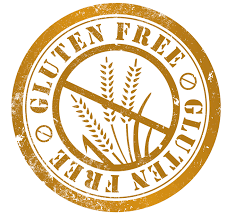|
Over the past few years, there has been an increase in the awareness of gluten and a change in the way people are eating to become gluten free. But what is gluten?
Gluten is a protein found in wheat, and related grains, such as barley and rye, however, it can also be found hidden in sauces and condiments, etc. For a person with Celiac disease, gluten causes severe problems, thus they must maintain a strict, gluten free diet. Even without Celiac disease, many people have a (known or unknown) gluten sensitivity; therefore consuming gluten in various amounts can have negative health effects, including inflammation in the body. A gluten free diet may provide a decrease in gastrointestinal discomfort, systemic disorders, and allergies, including IBS and rheumatoid arthritis, because it may be eliminating an inflammatory trigger for the body. What should a gluten free diet consist of? Ideally, a gluten free diet should consist of foods which are naturally gluten free. This includes fresh fruits and vegetables, meat, fish, eggs, nuts, beans, and rice. While this diet isn't right for everyone, you may try eliminating gluten (wheat, barley, rye) for at least a month if you feel you may benefit from a dietary change to see if you feel a difference in your body. Need help and more information? Contact Innovative Therapy & Wellness to schedule your appointment with our nutritional therapist, Andrea Calderon Odewald, PA-C, NTP, so she may help you to explore these issues and much more. You can find out more by clicking the Nutritional Therapy tab located under services.
1 Comment
|
AuthorsA collaborative effort from the experienced staff at IT&W Archives
May 2023
Categories |
Blog updates |
|
2224 Virginia Beach Blvd Suite 106, Virginia Beach, VA 23454

 RSS Feed
RSS Feed

